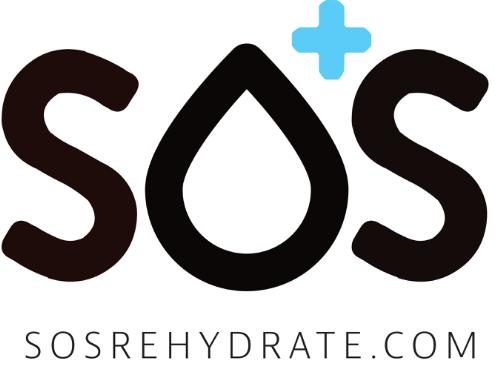Losing crucial electrolytes during training is a tangible process; one you can both see and feel. Rehydrating with a supplement like SOS in order to replace those salts and absorb water is safe and tested, yet many athletes are taking this same approach and applying it to a potentially dangerous array of supplements.

Supplements are by definition something added to the diet to make up for a nutritional deficiency. In the case of athletes, it has been estimated that almost 90% of elite track and field athletes consume supplements on a daily basis, often without a full understanding or evaluation of the potential benefits and risks associated with their use.[1]
In the United States, products classified as dietary supplements are not required to meet any Food and Drug Administration (FDA) standards – there are no regulations that guarantee the safety or purity of something sold as a supplement. This has obvious health issues, as well as potential anti-doping concerns.[2]
So why do so many athletes take supplements? They are undoubtedly useful in the case of a deficiency, but no testing is required prior to use, leaving many essentially self-prescribing products with effects that are often untested.
Most health risks of supplements are discovered after the products are already widely available, while the FDA is prohibited from removing a product from the market unless it can prove that it will cause a medical problem.
At best, most supplements are worth < 1% to performance. Unfortunately, they often receive considerably more attention than they warrant, particularly when proper diet and recovery will achieve effective recovery from training. While the majority of supplements have no scientific support, there are a several that have been shown to safely aid in the recovery process during intense training and competition.[3]
Once you have taken care of the essentials, here are three supplements that recent science suggests could be worth your time and money.
Beta Alanine
Beta-alanine is an amino acid, of which we all have a variable amount in our muscles. Studies have identified that it buffers intra-muscular lactate and acidosis, which are known performance inhibitors in running. Recent studies have shown that any training that produces large build-ups of lactate may benefit from β-Alanine supplementation to enhance training load and quality.[4]
Based on current research, beta-alanine’s primary role appears to be its effect on lactate threshold in endurance training, defined as the rate at which there is equilibrium in lactate production and elimination. This allows runners to sustain efforts above lactate threshold more efficiently.
Beta-alanine supplements should be consumed daily during heavy training blocks, and based on current research, a minimum of four weeks is required before experiencing any significant increases in intra-muscular carnosine levels.[5]
Fish Oils
Omega 3 fish oils such as DHA and EPA have not been extensively researched in athlete populations. However, there is evidence to suggest that taking large amounts of these fish-oils may help sickness prone athletes to stay healthier.
None of this has been confirmed yet by well-controlled studies. Also, if an athlete tends to not get at least 1.5 g of fat per kg body weight per day (or is somewhat fat phobic) then one might also consider supplementing the diet with this very healthy fat source as well.[6]
Beet Juice
Beetroot juice is packed with nitrates, which your body converts to nitric oxide, a molecule that enhances blood vessel dilation, increasing your blood flow capacity and lowering the amount of oxygen your muscles need.
A recent study published in the International Journal of Sport Nutrition and Exercise Metabolism suggests adding nitrate-rich beetroot juice can enhance endurance. Dr. Peter Peeling of the University of Western Australia looked at the influence beetroot supplements had on physiological and performance outcomes in a group of elite kayakers.
The findings revealed the beetroot supplement had a small effect on how far the men could go, but improved the energy needed to maintain their speed by 5%.
Various other studies have found similar results in elite cyclists, where the amount of oxygen required to maintain a given level of moderate exercise decreased after taking beet juice. In other words, it took less energy to cycle at the same pace. The best results came from the highest dose, which decreased oxygen consumption by about 3%. They did the tests 2.5 hours after ingesting the beet juice, since that seems to be the peak nitrite level.[7]
END
By Daniel Wallis: Runner's Tribe in conjunction with SOS Rehydrate